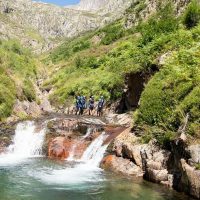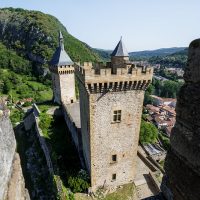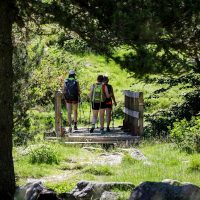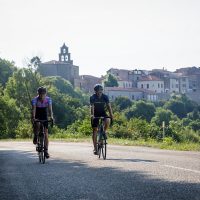Ariège is, after the Pyrénées Atlantiques, Most important cheese production area in the Pyrenees mountains, reflection of the terroir and signature of agro pastoralism. The production derives its specificity and its richness from the breeding of three animal species: sheep, goats and cows. Here the cheeses take the name of the valleys, the villages, the peaks of the surrounding mountains: the Pic de la Calabasse, the Moulis, the Bethmale... In Ariège, you can't finish a meal without a cheese platter!
a strong character ...
Today, professionals are organized around two categories: farm cheesemakers, that is to say, breeders who exclusively process the milk of their animals on their farm; and the artisanal, industrial or refiner cheese makers. In Ariège, the first category has more than 50 breeders producing a few 200 tons cheeses per year, compared to more than 2000 tons for the artisanal or industrial sector. Milk is the essential raw material for making cheese. Some cheese makers are helping farmers and breeders to set up shop, to switch to organic production for very high quality milk. Thefarmer becomes the main and fundamental actor again.
![]()
Tomme de Bethmale © Ariège Pyrénées Tourisme / S.Meurisse ![]()
Sale of cheese © Ariège Pyrénées Tourisme / S.Meurisse
a variety of flavors
In Ariège, there is no shortage of creativity and it shows in terms of cheeses, to the delight of gourmets! Our cheeses reflect our terroir, our mountains and our climate.
Here are some of our references 100% made in Ariège with love:
- The Bethmale: The Bethmale: in addition to being a magnificent valley, the "bethmale" thermal bath also refers to a traditional way of making cheese with few technical means. Originally, the shepherds made the cheese directly in the mountain pastures after milking the animals. Production began to be standardized from 1850.
Bethmale is a great classic of Ariège cheeses, produced from cow's milk and often available in sheep, goat or mixed (known as "barrejat" in Ariège patois). Its particularly airy dough offers delicious notes of hazelnut!
???? Discover the cheese dairy - The Moulis : the particularity of Moulis is that it is matured on fir planks? Also airy and made with the same method as Bethmale (traditional and with few technical means), from raw cow's milk, Moulis is a safe bet among Pyrenean tommes. Its versions with sheep's milk and goat's milk or mixed are a treat!
???? Discover the cheese dairy - The Rogallais : it's a family story above all! In the Coume family, we have passed on the well-kept Rogallais recipe from father to son (and daughter since 2015!) for 5 generations! Originally, it was made in Seix, in the heart of Couserans. The Rogallais is an essential part of your cheese platter. This soft cheese with a natural rind is available in sheep's and goat's milk.
???? Discover the cheese dairy - Calabash Peak : this cheese is made at the western end of Ariège (in the Bellongue valley) and matured for almost 6 months! This raw cow's milk cheese has been made with love for more than 50 years against the backdrop of the magnificent Pic de la Calabasse, which rises to over 2210 meters above sea level.
???? Discover the cheese dairy - Le St Paterne, cheese from the Abbey of Pesquié : made by the sisters a few kilometers from Foix, this soft cheese is a real treat for the taste buds because it is very creamy and tasty. The sisters also offer a delicious cow's milk tomme (who won the gold medal in the Pyrenees tomme competition in 2022?).
???? Discover the cheese dairy
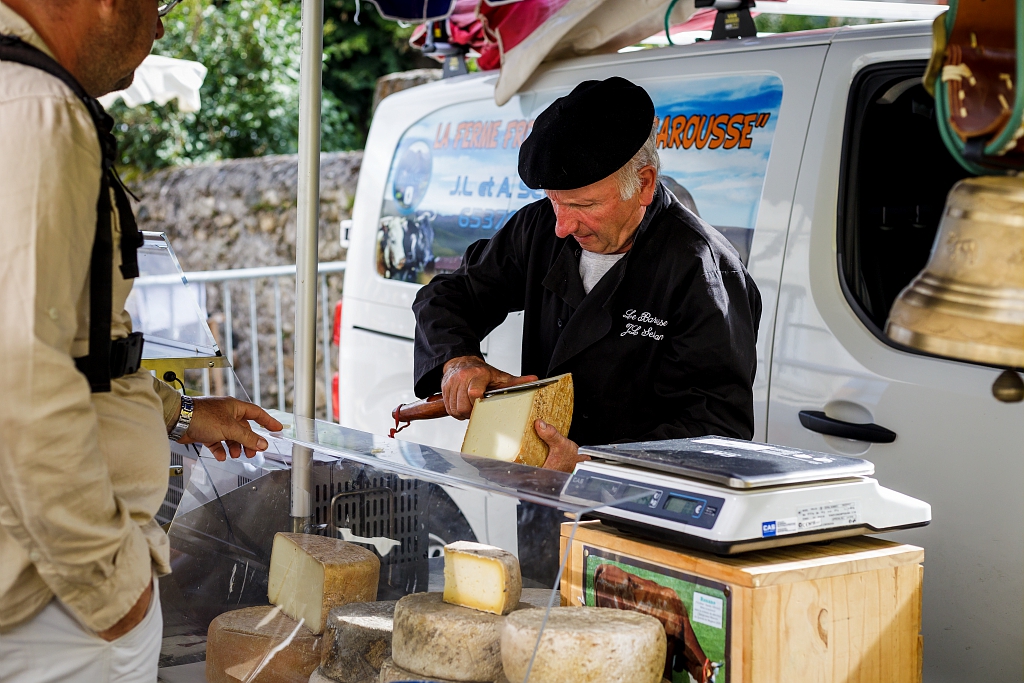
Trade secret ... bethmale
It is in the Bethmale valley, in the heart of Regional Natural Park of the Pyrenees Ariégeoises, that at the beginning of the XNUMXth century, the first orchards were installed for a higher yield.
Bethmale is undoubtedly the most famous Pyrenean cheese. Originally from Couserans in the county of St Girons, it takes its name from the village where it is made. It is even said that he would have had the favors of Louis VI when the latter, in the XNUMXth century, crossed the region.
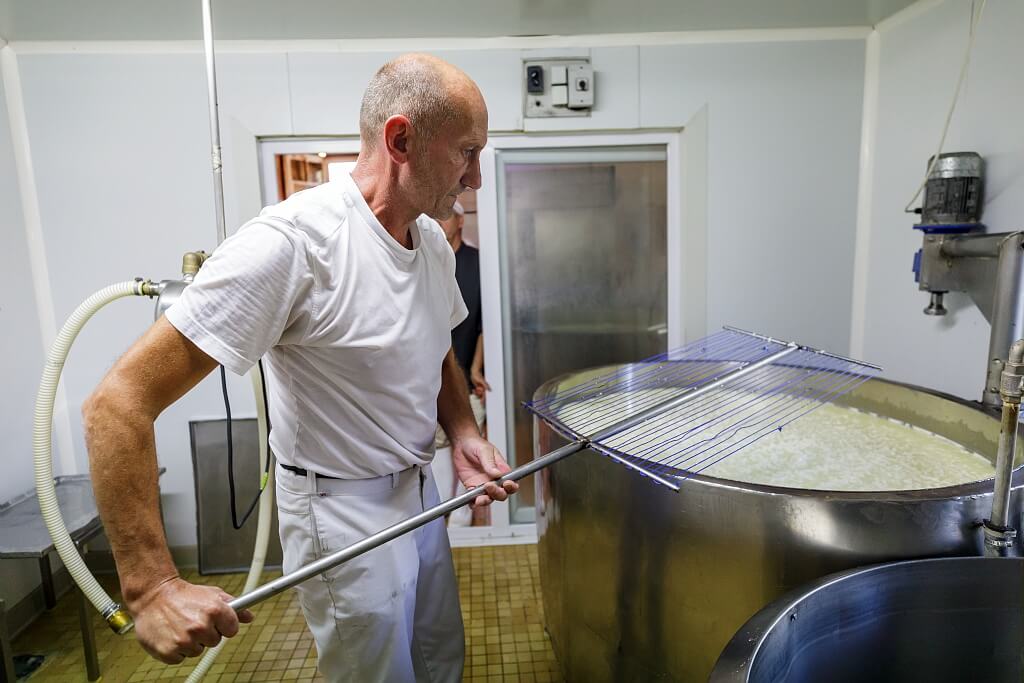
It is one of the rare cow cheeses from the Ariège Pyrenees.
The making : All types of milk undergo the same manufacturing process (cow, goat or mixture), whether goat, sheep and mixtures. After the entire manufacturing process, the cheeses arrive in the cellars, where they receive special care, before marketing.
Bread, wine and cheese, a trio not to be left under the cover ...
A cheese board, 100% Ariège is a journey of tastes, smells and characters. Before tasting, for the cheese to express its aroma much more, it must be left sweat in the open… The platter must include several varieties: cow's milk, sheep's milk, mixed milk, creations made with goat's milk… The tasting must begin with “young” cheeses with soft cheeses and a thin rind. Then comes the more mature pasta. They took the time to age in the cellar and develop more powerful aromas. The seasons, the milk, the ripening time modify the flavors and tomme de bethmale, does not look like another. Each cheese producer has his secret. Between each variety, we renew our palate by eating a little bread or quenching our thirst.
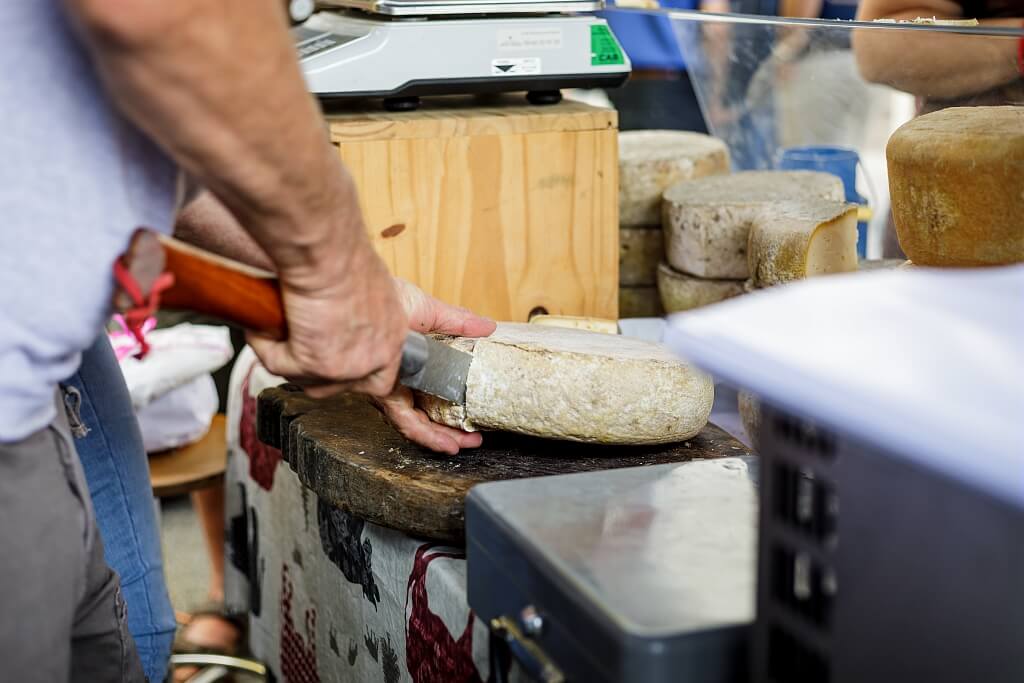
All in the kitchen with Tomme des Pyrenées from Ariège ...
In the kitchen, Ariège chefs are inspired by cheese and invent recipes: broussade pie, mountain trout puffed with cheese, duck breast rose on a fondant of Ariège goat… Recipes to find…
Where to buy your cheese?
Of the many markets "Full blast", many producers come to set up their stand and sell their production for the week directly. In Saint Girons, on Saturday morning, we can see that Ariège is the other country of cheese: tommes, crottins, pyramids, pucks ...
Along the departmental roads, signs indicate the cheese producers. Often they have a small shop attached to the lab. You can buy your cheese and in addition you will have the story. And yes, each cheese has its history in Ariège.


